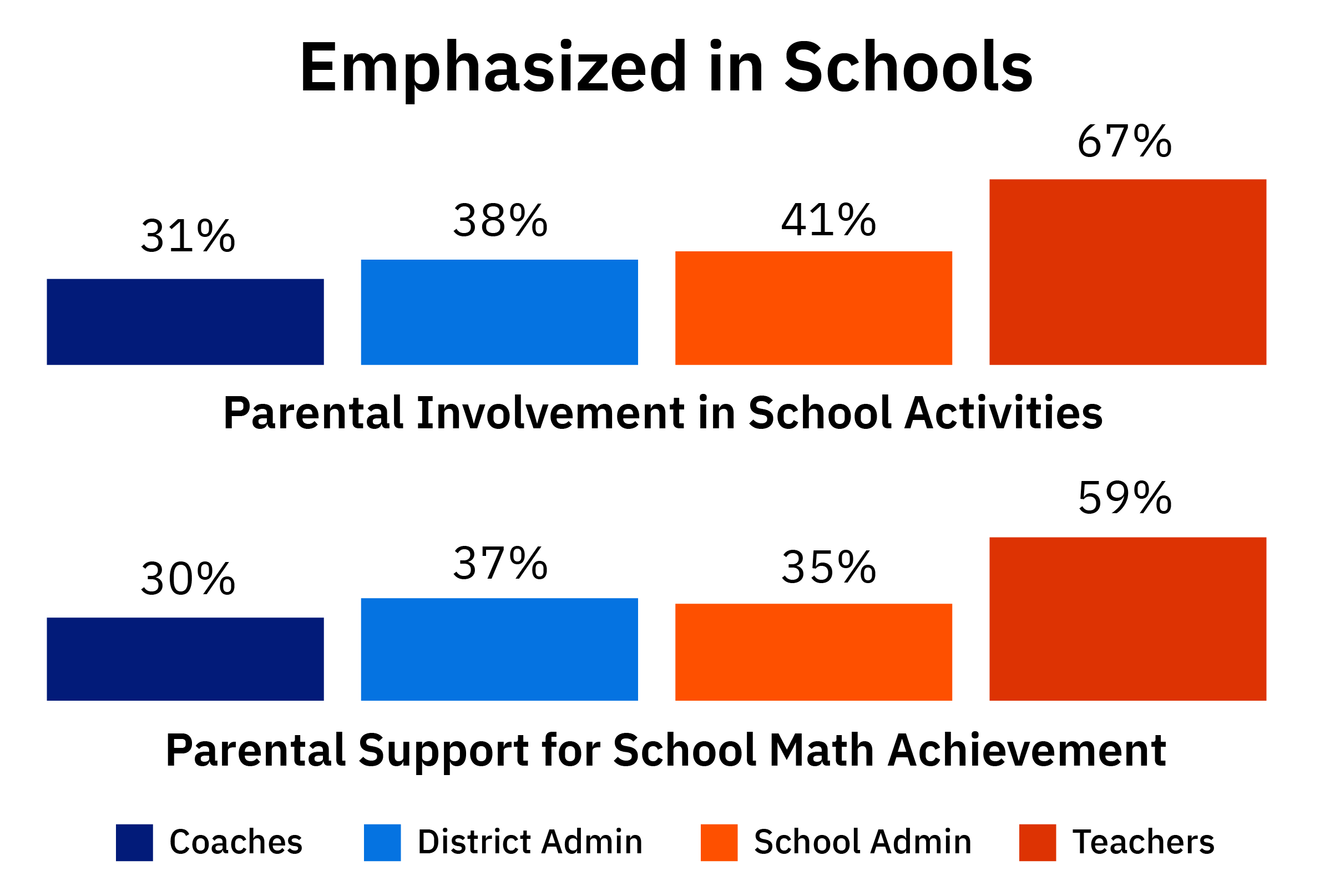
Mathematics Beyond the School Day
Mathematics Listening Tour – Brief Report
In the Fall of 2023 we conducted a listening tour across the state of Florida in an effort to understand the current state of mathematics education. This brief reports on what we learned from parents/caregivers and other stakeholders about ensuring students are successful in mathematics.
Key Finding: Parents Desire Additional Resources to Help Their Children With Mathematics
Read the full brief report on our key findings and their implications on mathematics beyond the school day.
Read our Landscape Analysis on mathematics education in the State of Florida.

Parents report feeling uncomfortable talking about math to both their students and teachers.
Parents also frequently commented on how math is taught differently today than how they learned it in school, and the need for resources or community events to bring parents up to speed on new mathematics teaching methods.
Coaches, district administrators, school administrators, and teachers especially report that parental involvement and support is not emphasized enough within their schools.
They also touched on the lack of investment for mathematics resources and support pales in comparison to investment in support of reading skills, from a school to state level.

Recommendation: Schools Can Offer Community Mathematics Events
- Connect with families around mathematics
- Expose parents and caregivers to the type of mathematics learning their children experience
- Host family math nights, parent academies, and community-embedded mathematics events
Recommendation: Schools Can Support Families With Mathematics at Home
- Send home informational flyers or instructional videos with information about what math students are learning in school
- Create take-home math kits with manipulatives and activities for parents to teach their students through play
Recommendation: Schools Can Offer After-School Tutoring Programs
- Offer freely-available after-school tutoring programs
- Provide districts with flexible funding to fund the staff and materials for these programs in ways that best meet their unique communities
